With the boom of the crypto scene, the classic purchase of stocks has got competition. More and more investments are being made via investment options based on blockchain technology. How do they work? And what differentiates them from the classic initial public offering?
IPO – The Classic Stock Market
IPO stands for Initial Public Offering and refers to the first issue of stock of a company. Certain legal and financial requirements must be fulfilled: a minimum profit threshold, a positive track record and also a prospectus containing important information about the company. With this information, interested parties can then decide whether they want to buy the shares. For an IPO, a company has to be relatively established already and it is associated with a relatively high regulatory effort. In addition, there is the high cost factor – a major reason why one might decide to use one of the following blockchain alternatives.
ICO – The Token Sale
IPOs are uncommon in the crypto market. Here, Initial Coin Offering (ICO) is a common investment option. The ICO can be used to bypass strictly regulated processes for raising capital like IPOs. For example, no track records are required for it, – which is why they are popular with startups and young companies to raise capital. They are no longer just a means of financing cryptocurrencies, but have established themselves as a form of financing for blockchain-based business models.
In an ICO, companies sell tokens that can have different benefits for their owners. Some are used as money substitutes (currency tokens). However, like a digital voucher, they can also give their owners the right to use a company’s products or services (utility tokens). Depending on the jurisdiction, ICOs are sometimes more, sometimes less regulated.
STO – The More Regulated ICO
In a security token offering, investors can invest in a specific type of token: the security token. They are considered more secure because they are linked to actual assets such as land, real estate, commodities, or even profit shares. That’s why exchanges treat them like traditional securities in terms of regulation. Among other things, a securities prospectus is usually required. Before companies are allowed to issue security tokens, the securities regulator must approve the issuance.
However, there are significant differences to the traditional IPO: the issuance takes place directly via the blockchain, so they are visible in the digital world and thus for innovation-savvy investors. Token-issuing projects also save on the high bank fees that would be incurred in an IPO. Another advantage is that the minimum investment value can be low due to the tokenization of the asset, so that STOs are also attractive for small investors.
IEO – Token Fundraising on a Crypto Exchange
In an Initial Exchange Offering (IEO), the issuer and investor are joined by a third player: a crypto exchange. Issuers offer their tokens on this exchange. The advantage for companies: they reach a larger number of potentially interested parties through the listing. In addition, they gain more credibility, since the exchanges have an interest in listing only reputable projects. That is why issuers are screened before listing. Investors also benefit from this. Another advantage for investors: they can invest in a variety of IEOs at the same place and do not have to register for each token sale on a different platform.
IDO – The IEO on decentralized exchanges
While the IEO happens on a centralized exchange, the Initial DEX Offering (IDO) happens on decentralized exchanges (DEX). IDOs move the investment option back closer to the decentralized philosophy of cryptocurrencies. Since a DEX is self-organizing, listing costs are lower.
Do you have questions about the topic? Feel free to get in touch with our Practice Director Paul Gärtner. Located in the heart of Berlin, one of the world’s best blockchain hotspots and startup scenes, PIABO has been representing clients from the broader blockchain cosmos for years. These include DFINITY, the xx network or financial service providers such as eToro and Vivid.


